Our last acts of kindness to the villagers of La Capilla before saying goodbye today was to fit those in need with a brand new pair of reader glasses then to give a few school supplies to grateful teachers.
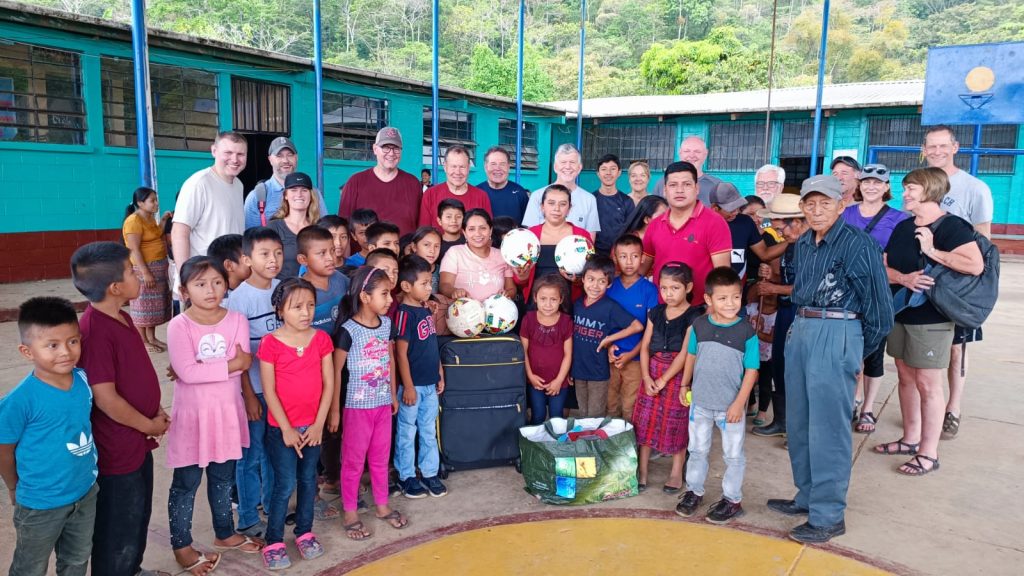
We had finished our stove work on Wednesday, with each team building at least nine stoves with metal pipes and a couple of teams even more. After all, by day two we had become much more proficient than on Monday, often cutting the individual unit install time from two hours or more to as little as 25 minutes.
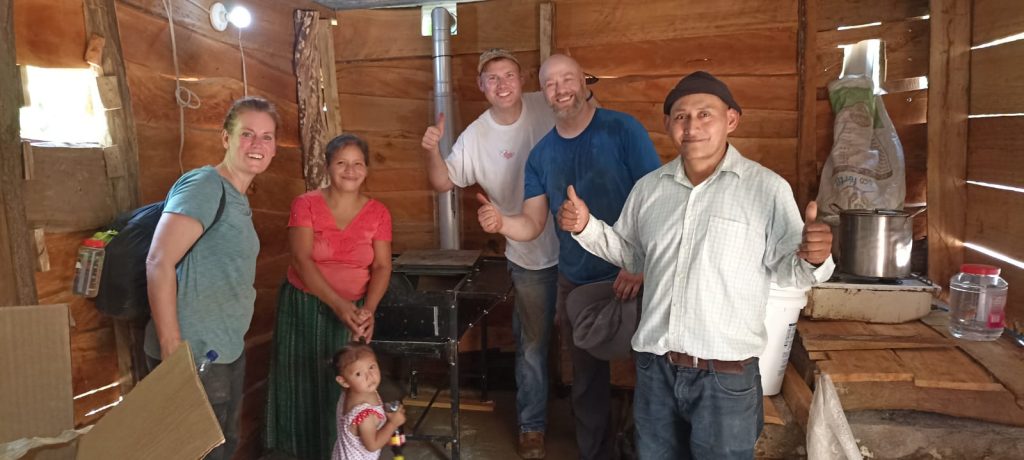
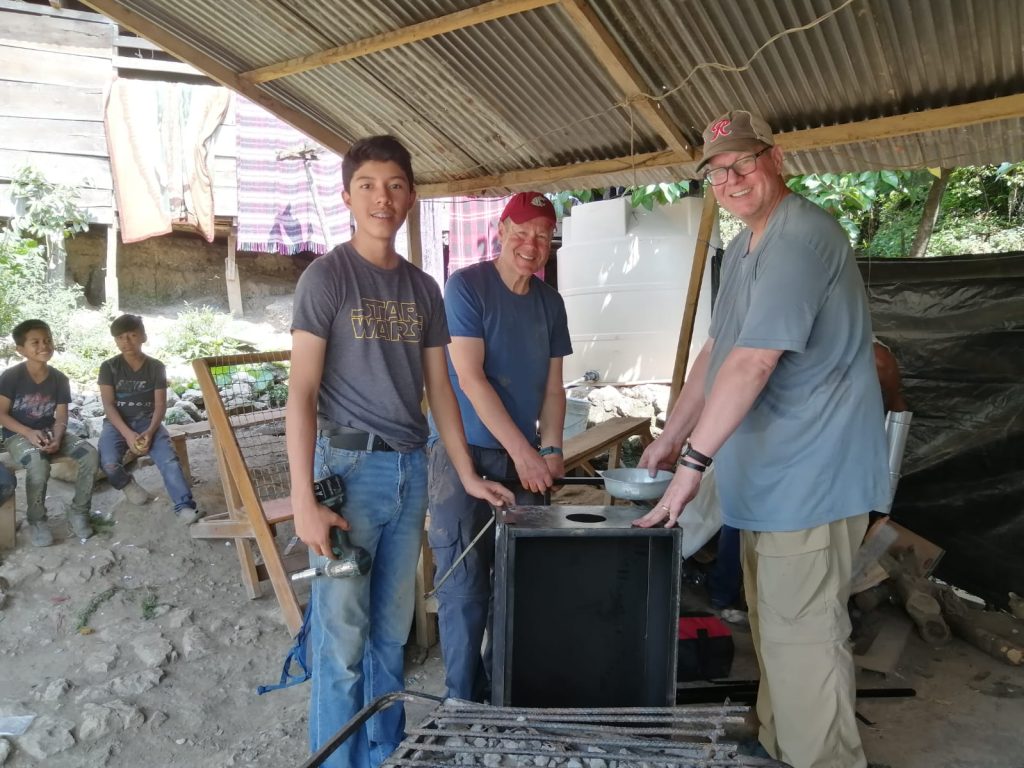
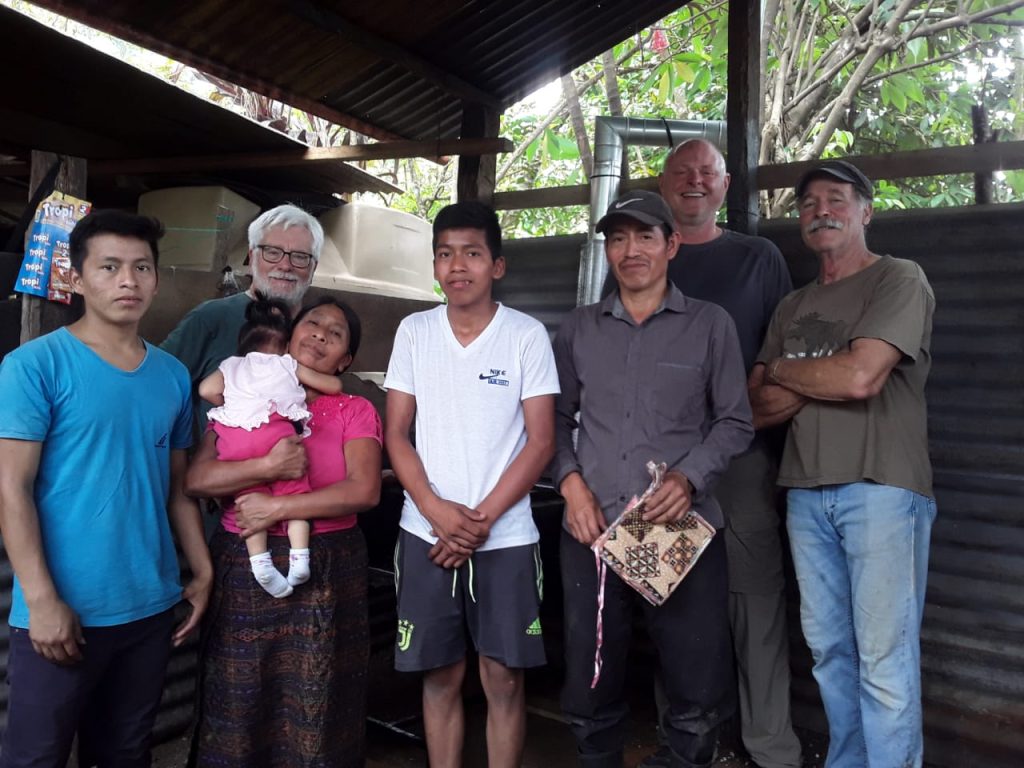
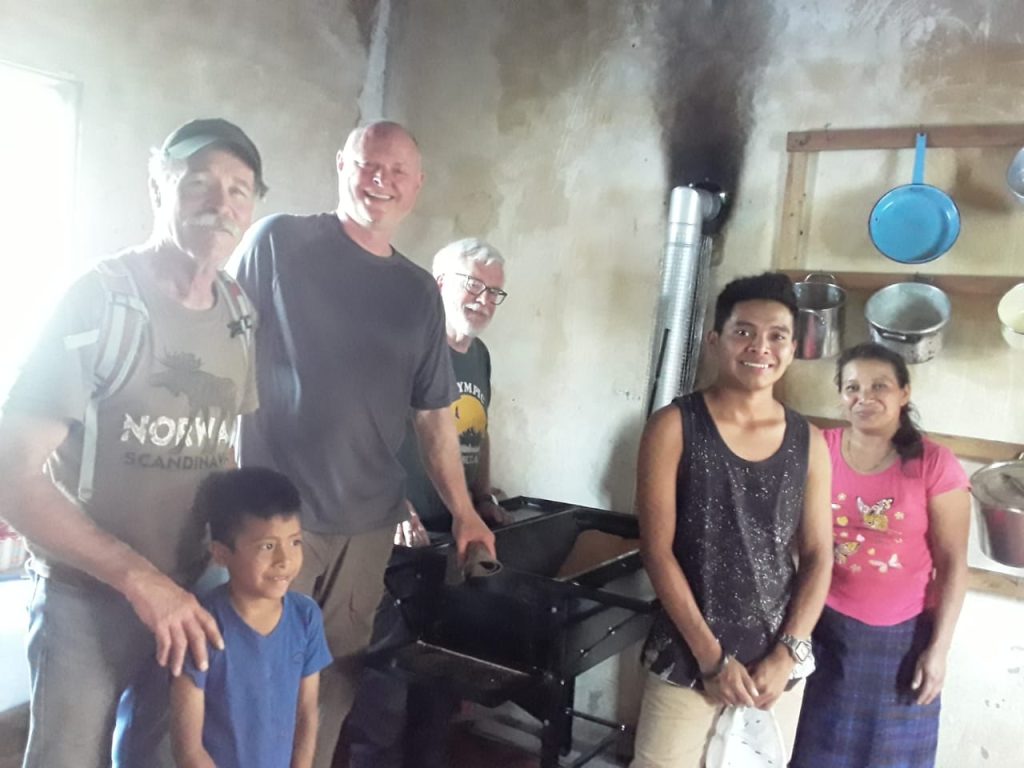
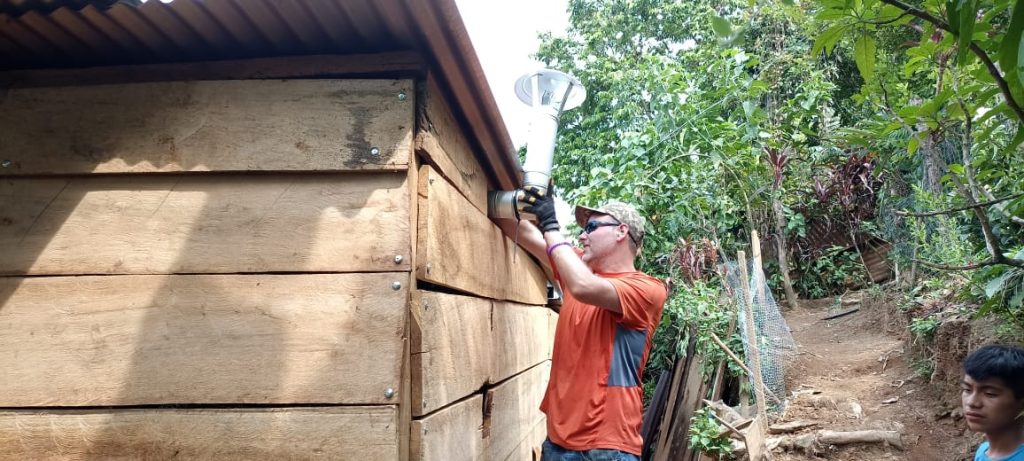
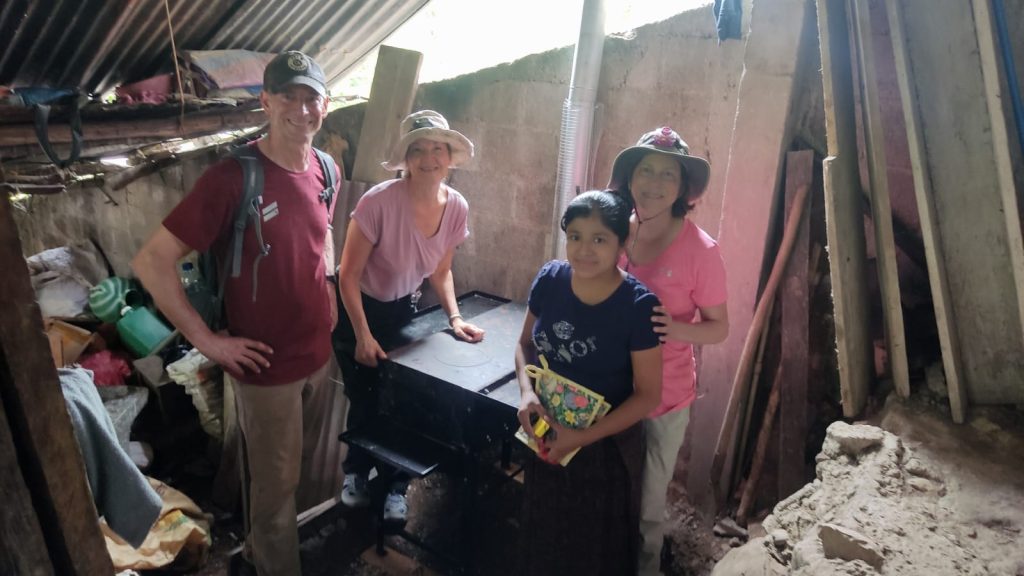
A couple of the five-member stove teams even split themselves into two so that another install could begin before the previous one was finished. Each stove team, made up with two or three from our group of 14 plus a villager plus a Hands for Peacemaking worker, became so adept at the process, like musicians playing in a symphony, that they hardly had to talk. In fact the team couldn’t completely talk as there were often three languages being spoken, English, Spanish and Kanjobal. In my team’s case our village helper, Panther, knew no Spanish or English but fortunately our Hands for Peacemaking guy, Fernaldo, spoke fluent Kanjobal. My brother Tom and I were also joined by Marco’s highly capable 14-year-old son Alan, who is fluent in both Spanish and English. We made it work, and in between we tossed balls with the children or made them laugh.
Here’s the stove assembly process in a nutshell: Arrive at the home and look for the packed up stove and accessories, not always apparent in the dimly lit house. Once found, first unpack the stove box, then bolt in the back legs and tray supports and bottom pieces, flip over and attach the front legs and “ashtray,” bolt on the side trays (there are 38 bolts in all) and underlying heat protection strips, then bang in the damper, put in the “metal bricks,” place the bottom clay bricks, tilt stove, pour sand in each side, place the end bricks and the stove is done. Every team did things a little differently, but most had other members fitting the outside stove pipe along the interior wall then outside to the roof while the others were completing the stove. If all went right the two processes would be completed about the same time. Oh, and if the floor was dirt, as most were, it was often lumpy and had to be leveled with hoe or other available implement before the stove could be placed on the two boards that came with the stove kit. Sometimes the stove went together well, but the stove pipes were a challenge, especially if the home was two stories or more.
I’ll say this with some thanks that there aren’t any OSHA inspectors in Guatemala – of course we do our utmost to work safely but sometimes the roofside pipe placement can be a little, well, dicey.
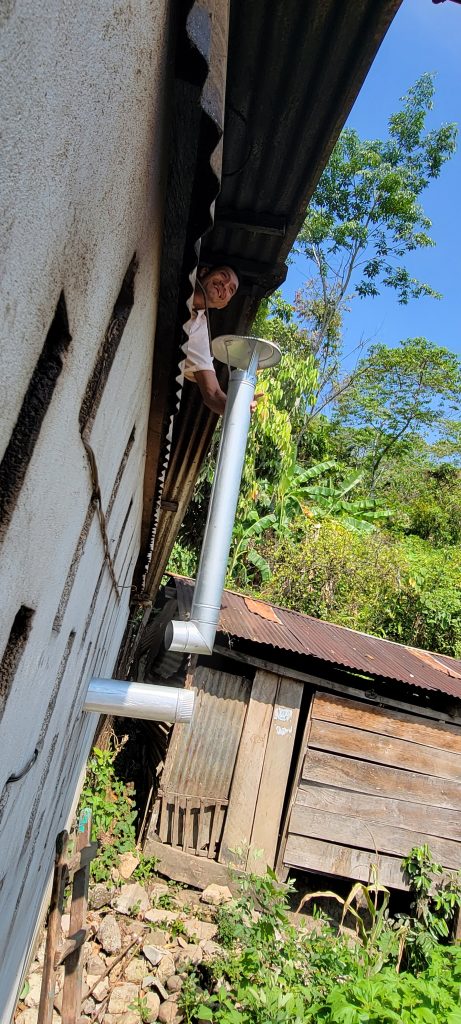
On Tuesday we had to make a critical team decision. We knew pretty much from the onset that installing all 152 stoves would be a challenge, even with a team our size. We knew we’d get close though, and Marco gave us the option of working into Thursday to finish up, OR, we could do what we could do on Wednesday and let the Hands for Peacemaking staff finish the rest on Friday as they have to return to the village for final supply pickup and cleanup anyway. We knew we would have to do our own packing on Thursday plus distribute the reader glasses and take part in the farewell celebration and we also wanted to beat some of the road construction on the way back. We ultimately decided to let the staff finish, a decision fully advocated for by Marco. We still set what we believe is a new record for any Hands for Peacemaking team at 132 stoves and water filters, plus the four demonstration stoves that had been previously installed in the village by staff. The balance are at the homes and will be installed shortly, meaning thanks to our generous donors every family in La Capilla now has a brand new Aller stove and EcoFilter water filter.
We were also able to give 20 youngsters the sweaters knitted by Barbara Nelson of the Lutheran Church the Redeemer in Chimicum, and the more than 100 sets of potholders lovingly knitted by the Hearts and Hands sewing group at Marine View Presbyterian Church in Tacoma.
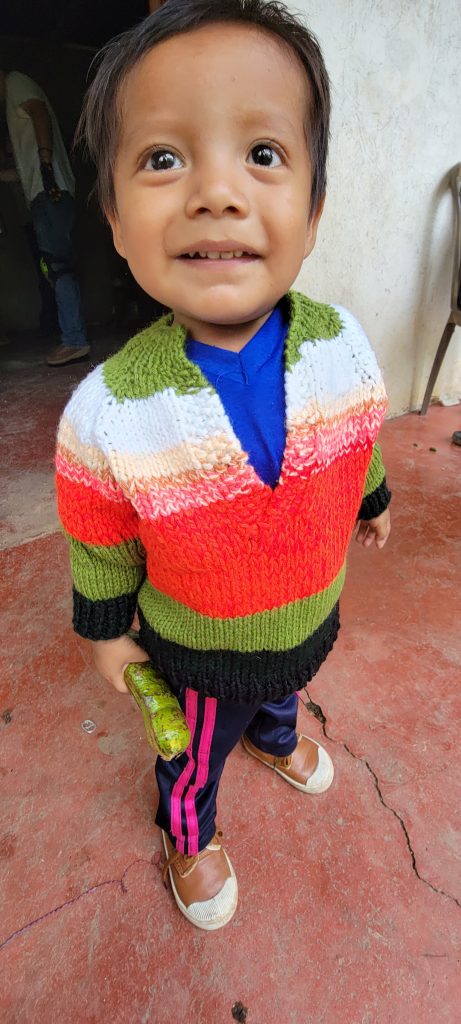
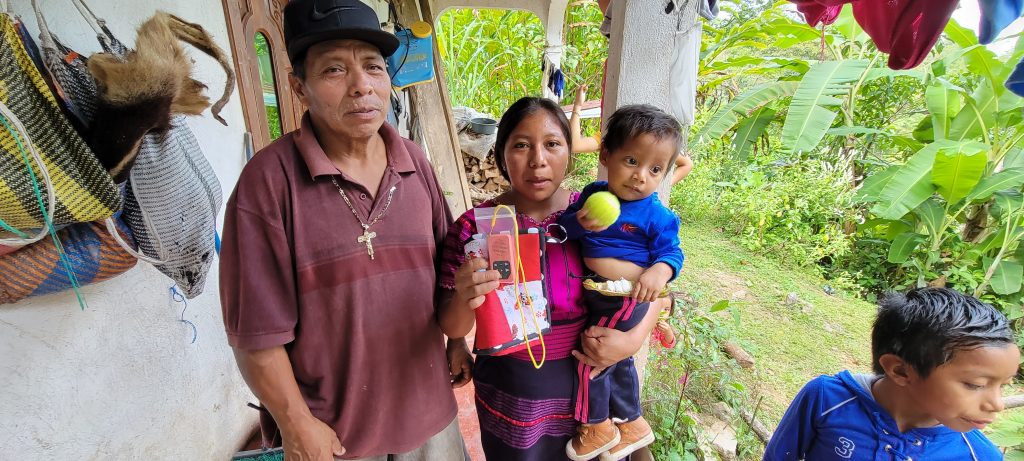
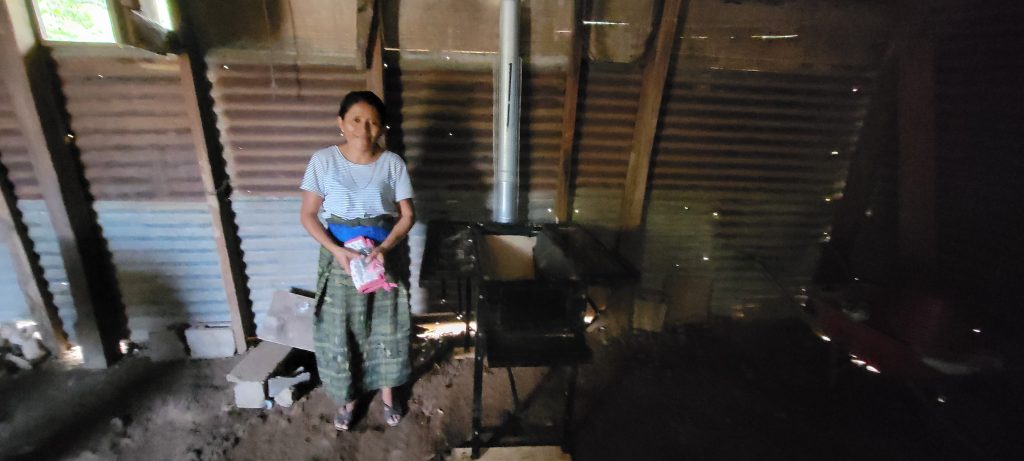
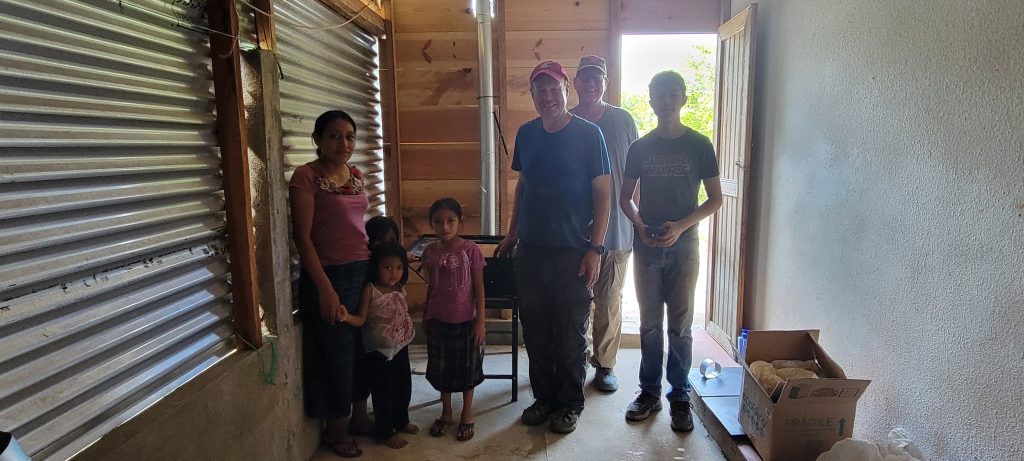
Each family also received a Seedplayer audio Bible story book recorded in Spanish and Kanjobal. Amazingly, as we were demonstrating how to operate the Seedplayer, some of the villagers instantly recognized the voice as being from TV Radio Maya, the station that broadcasts just a few blocks away from the Hands for Peacemaking mission house in Barillas. So this evening Marco and I wandered over to the station to drop off a couple of leftovers and show them how their words are being used. The broadcaster on duty, a fellow named Pascal Sebastian Francisco, took incredible interest in both the Seedplayers and our mission and before we knew it we were live on air giving an extended interview about our work.
First I had to learn a few words of greeting in Kanjobal to offer to the people of La Capilla.
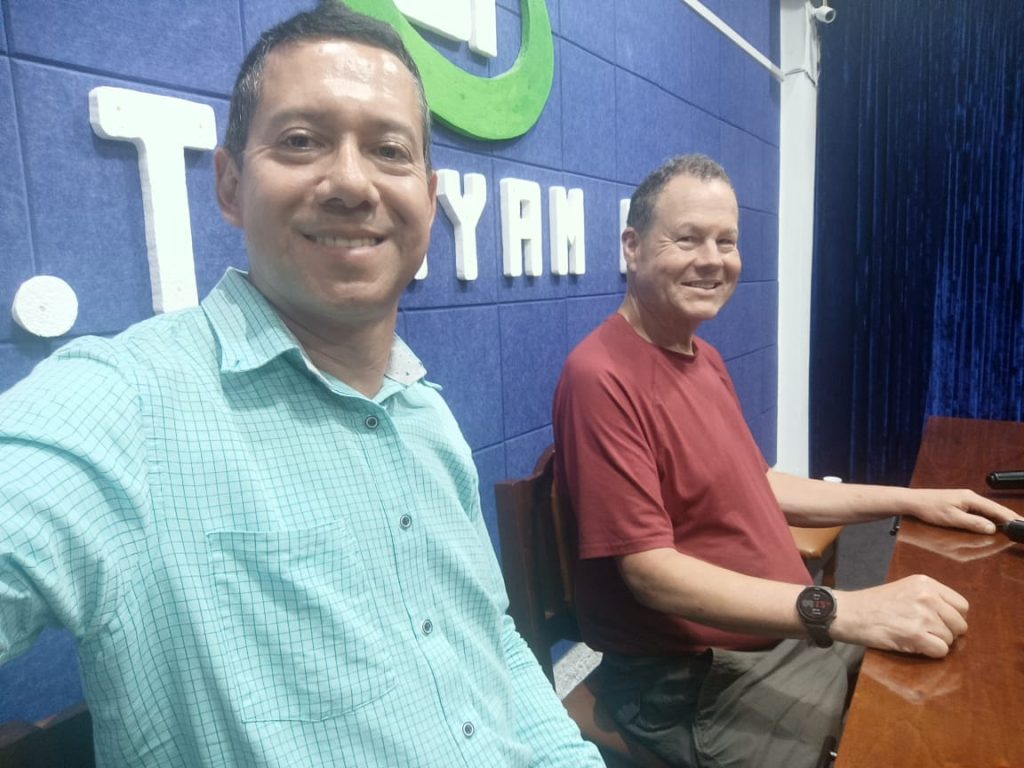
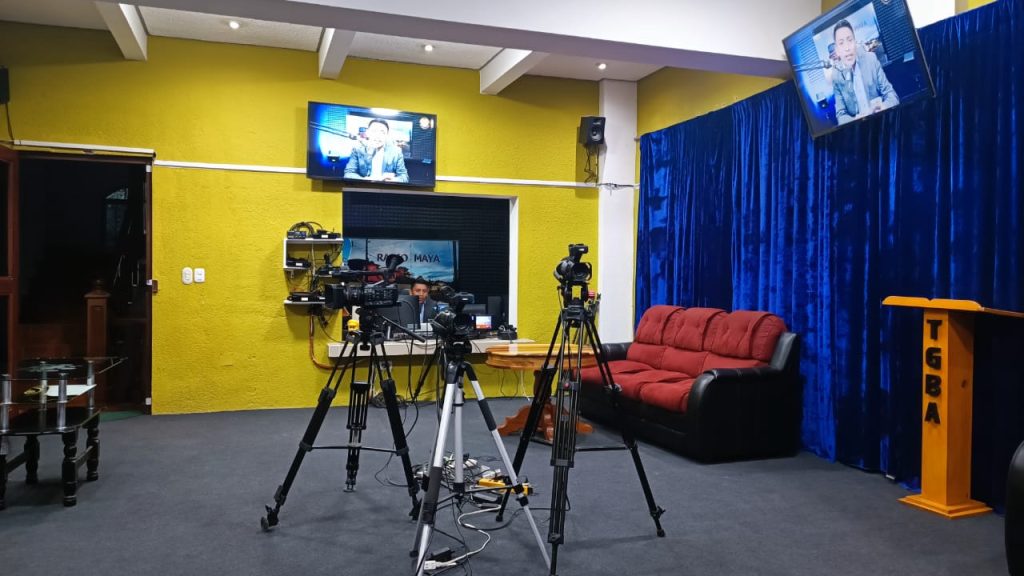
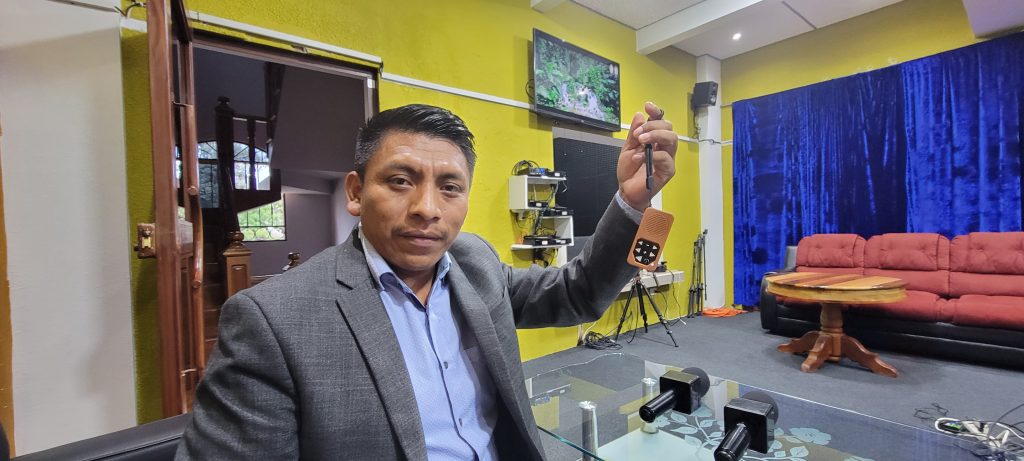
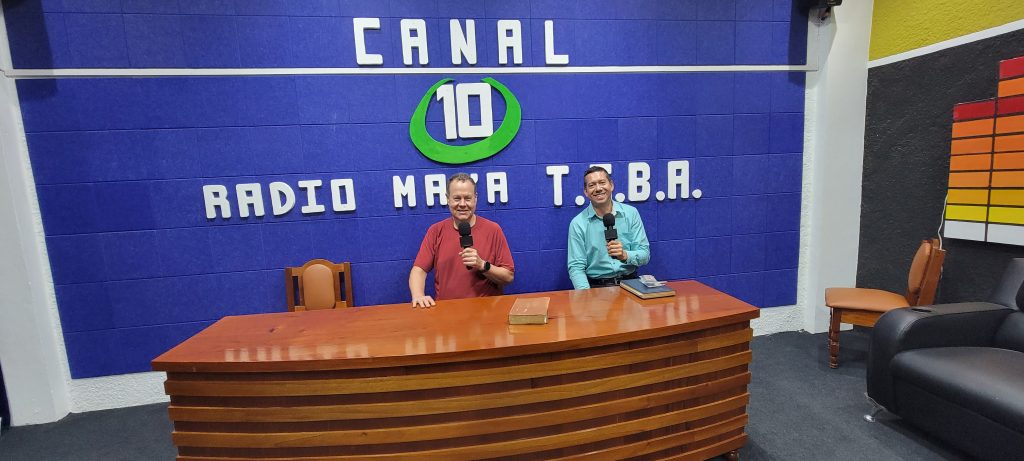
While Marco and I were at the radio station, other team members were taking a tour of Barillas, stopping at a local coffee shop, listening to music at the town square and shopping.

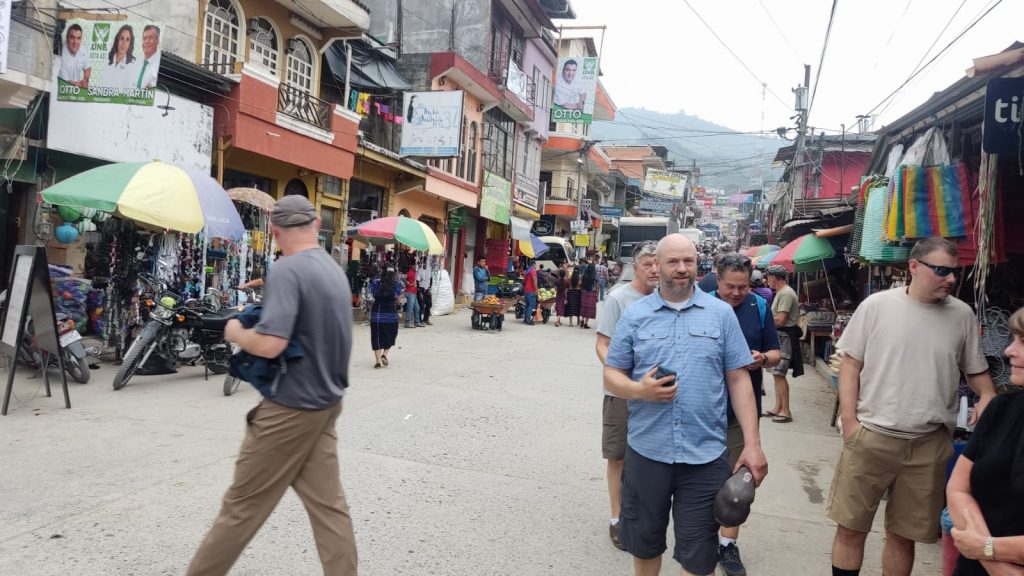
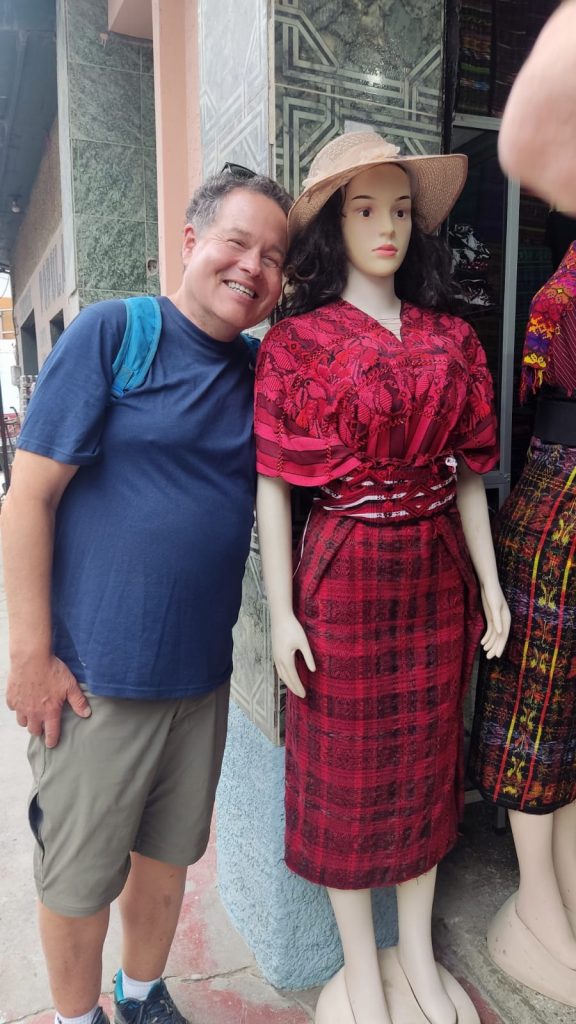
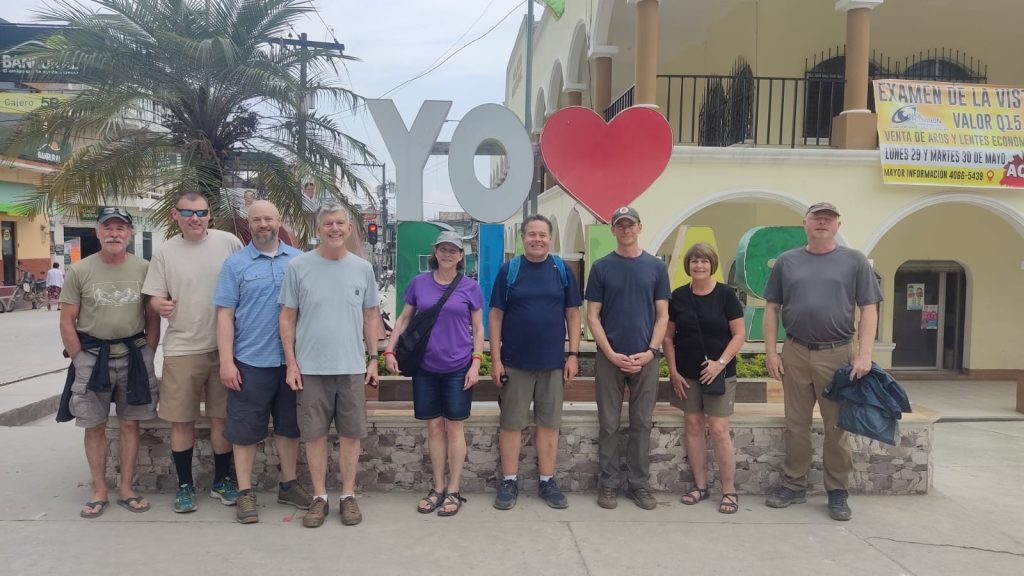
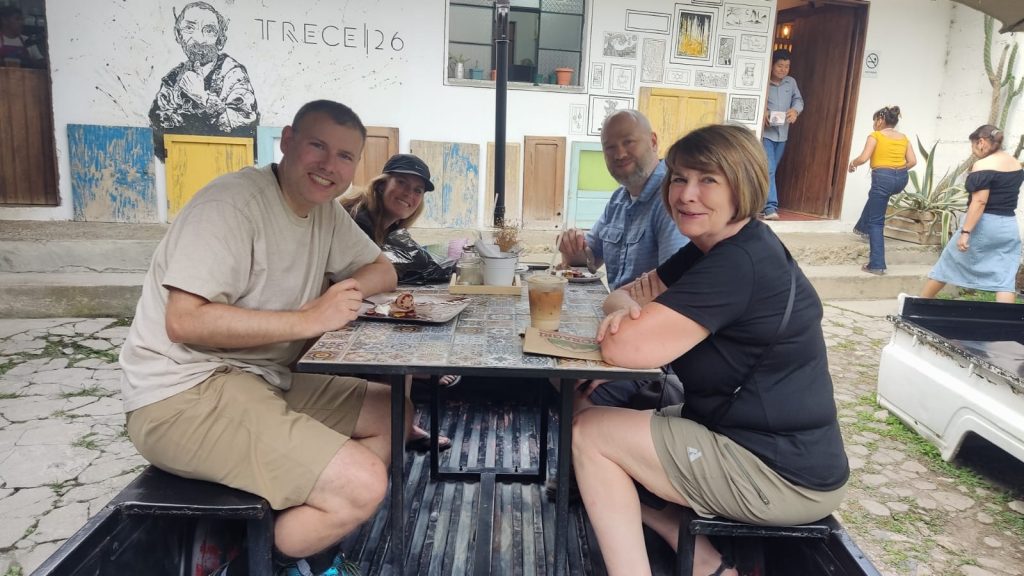
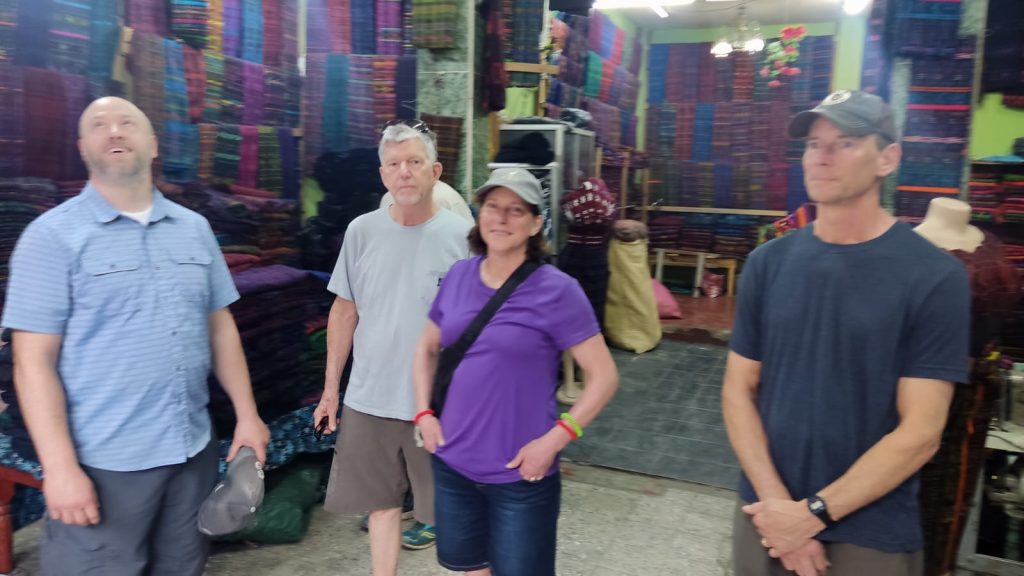
Our other fun adventure was Tuesday night, when most of the guys climbed in the back of the pickup and drove a half-hour or so to a local swimming hole. Getting there was half the fun – besides the drive we had to cross a rickety cable suspension bridge. The river water was warm and refreshing.


On Wednesday after the stove installation work we hosted an all-village event at our compound. The minister from the Abundant Life Church in Barillas, who speaks fluent Kanjobal, drove up with his wife and preached to the gathering and Dago, their music master, sang some songs. We also performed, singing a rousing rendition of “When the Saints go Marching In” in English with a Spanish verse, plus an all-Spanish tune called Pio Pio Pio, with Conrad leading the charge and Kurt helping him on the ukelele.
This morning we had the joy of passing out reading glasses to villagers who needed them, always a personal favorite part of our mission.
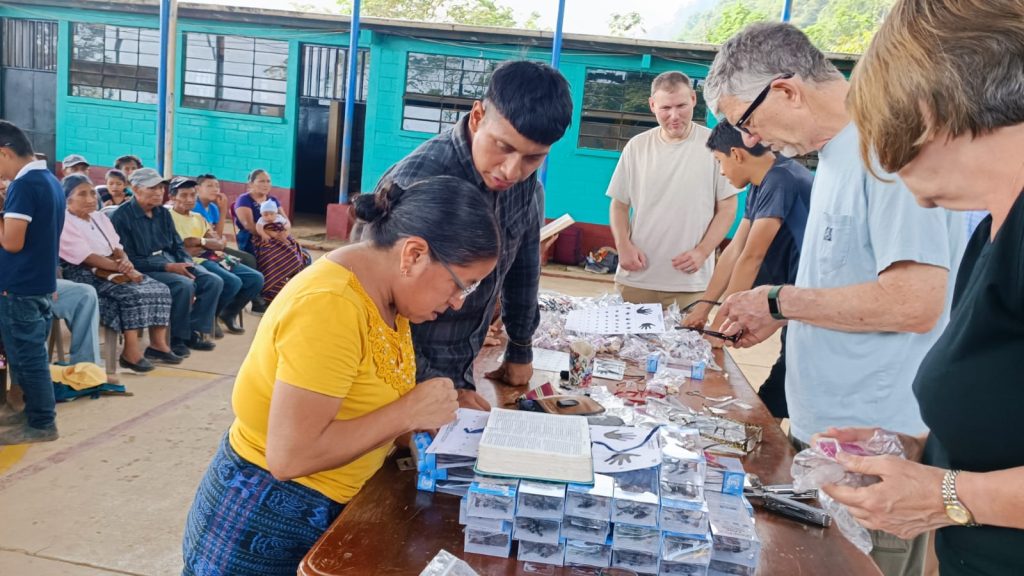
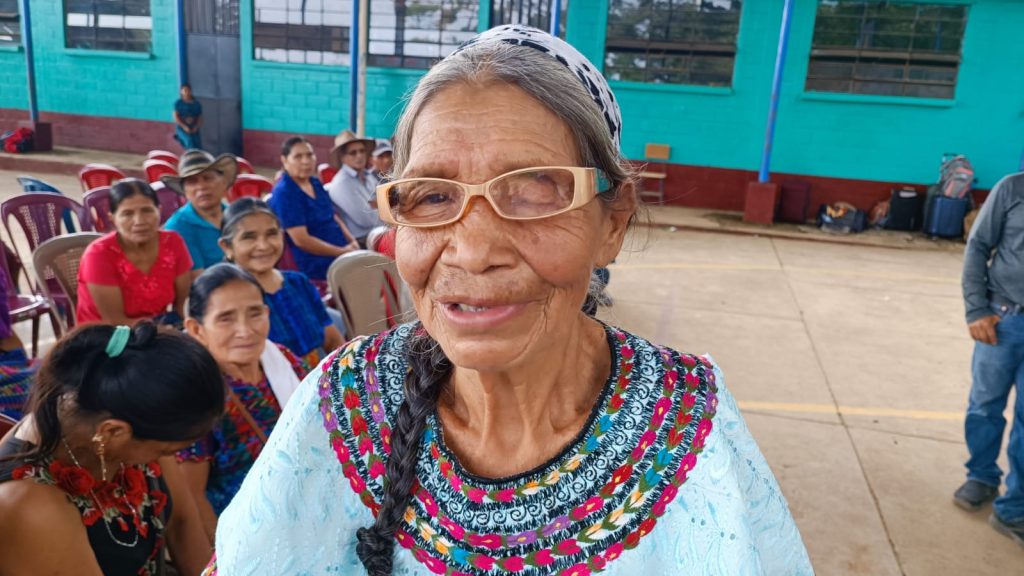
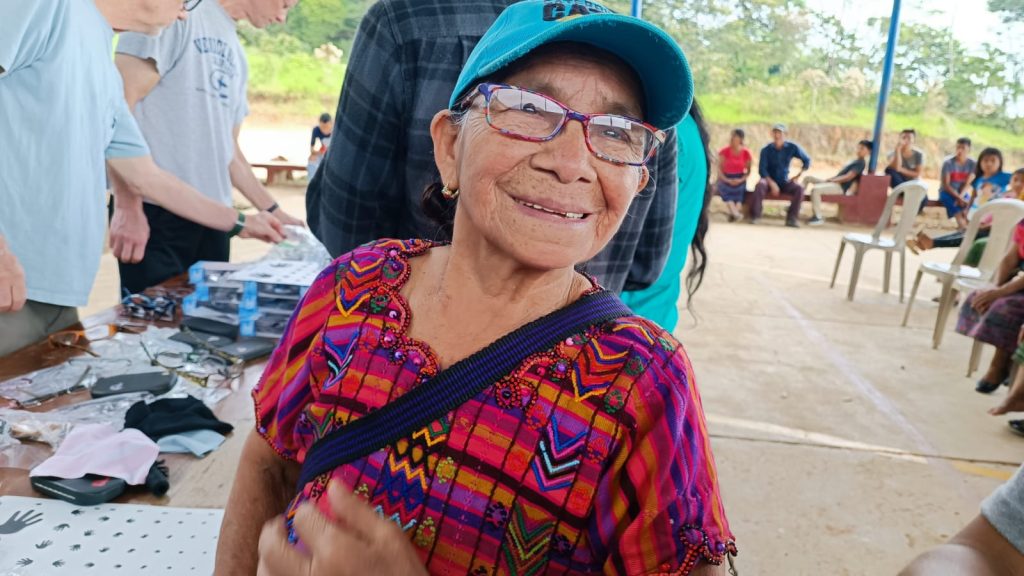
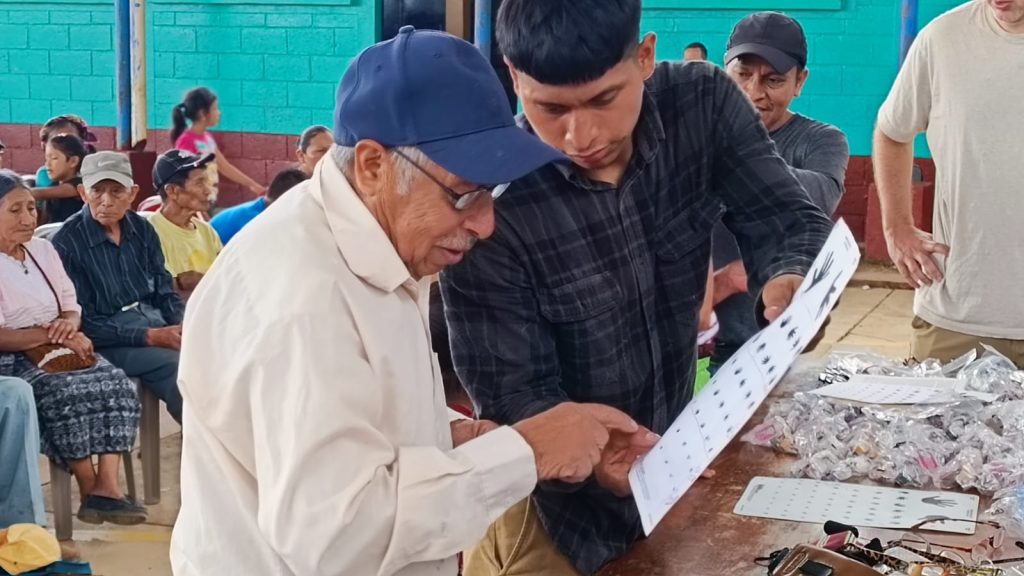
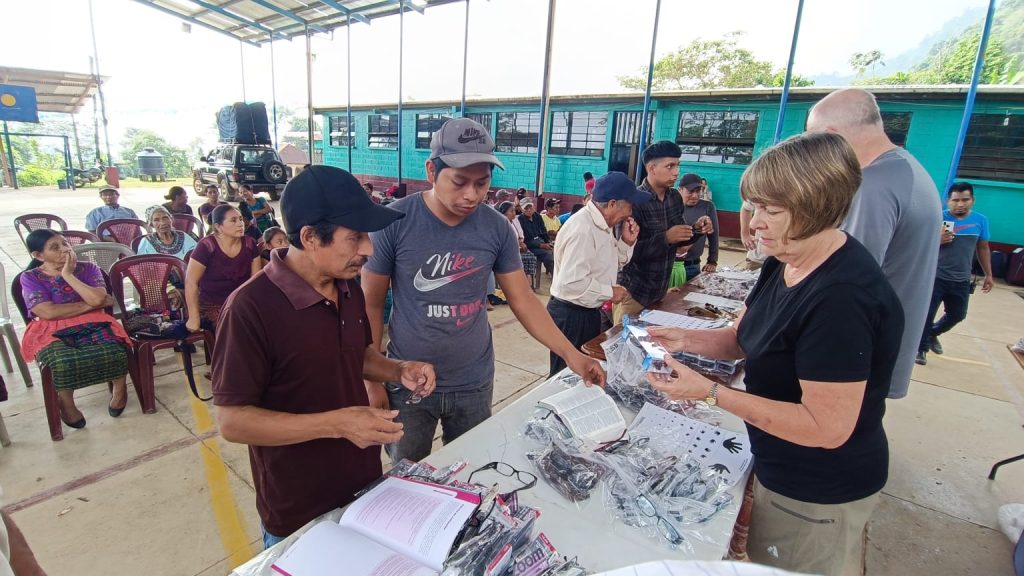
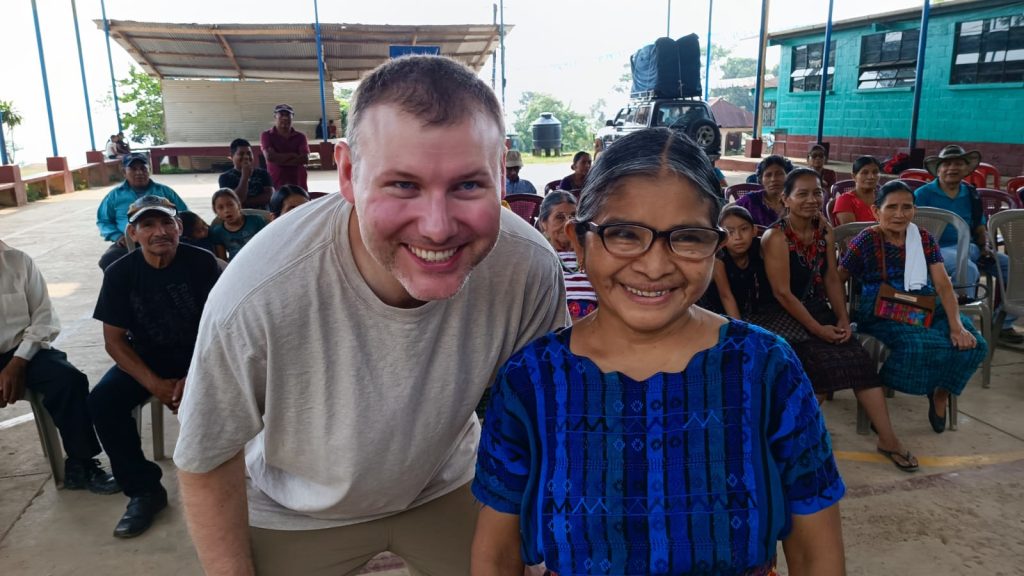
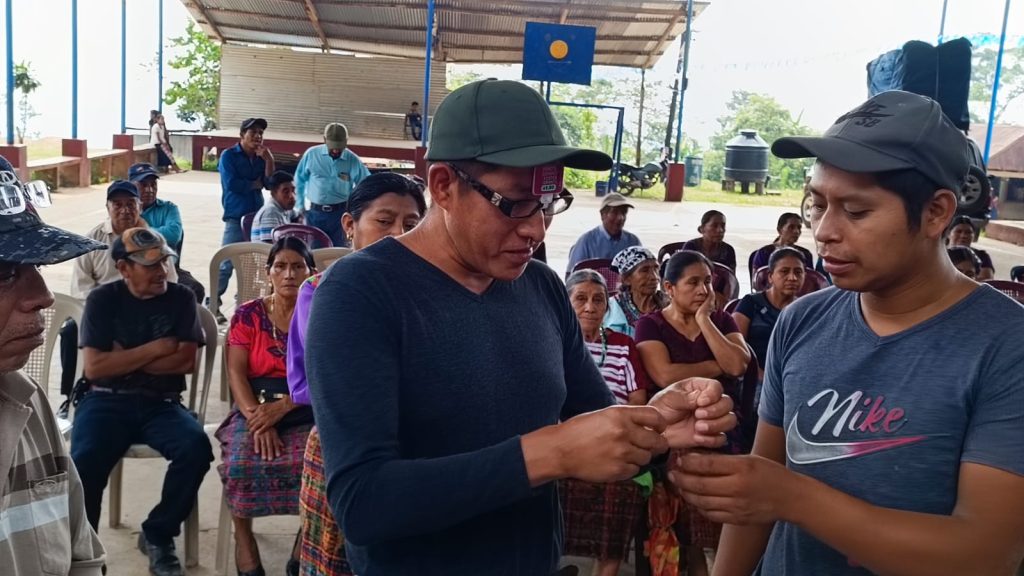
Then we said our farewells to the villagers, who surrounded us with gratitude and warm hugs before we loaded up in the bus.We are thankful the team finished up in the village healthy and without major injury.
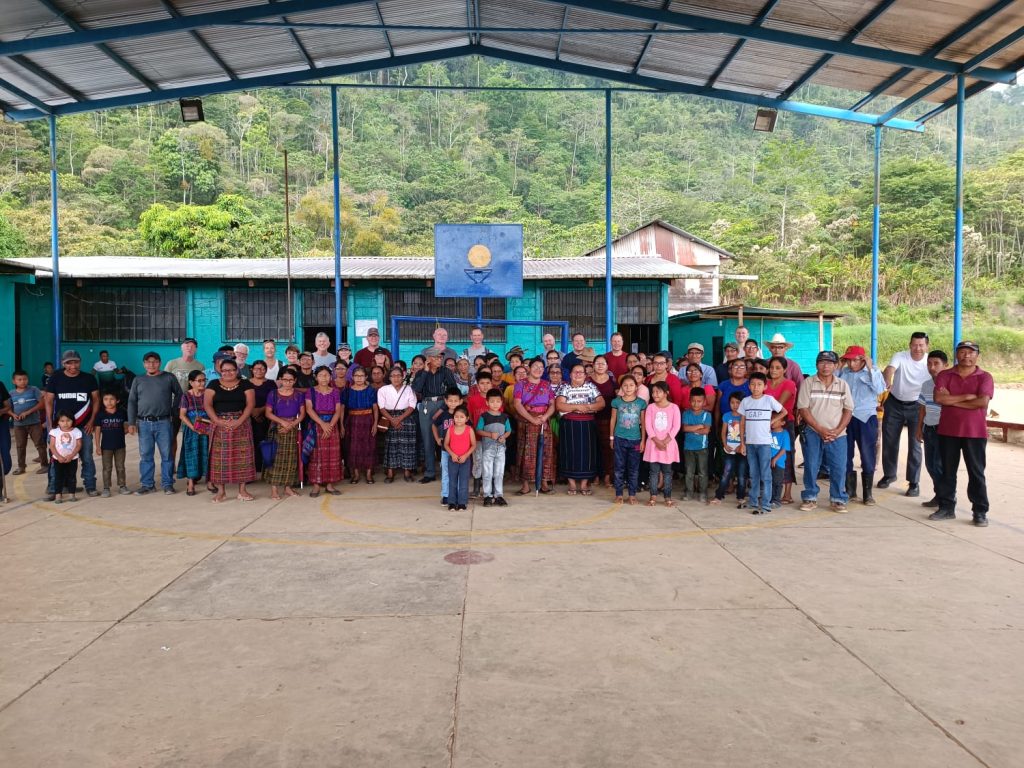
By the time you read this we will be on the road again, making the all–day drive to Panajachel on Lake Atitlan.I’ll try to post again from there or more likely from Antigua.Thanks for following along.
Brian

Great work, Brian and crew! What a difference you are making in the lives of these folks. The quality of their existence will be forever changed. Well done, good and faithful servants!
What a blessing you’ve been to this village. Congratulations on a productive service trip.
Wonderful story, great photos, job very well done!! I love the speedplayer for their bible learning. The La Capilla villagers were blessed to have each hel in making such a positive improvement in their daily lives. Thanks to all on this team. Hope to join you next year:)
So great to read the updates from your trip. Thank you for posting them and for making a difference in the lives of everyone in their village.
What a wonderful derful job you all did. I so enjoyed reading about your work. It looks like you had fun, too
Thank you for all the updates, stories, pictures & videos. I’m certain those on the receiving end of your love, compassion, work, talent, & time have been greatly blessed. I hope you’ve been blessed through your serving. You are all amazing!